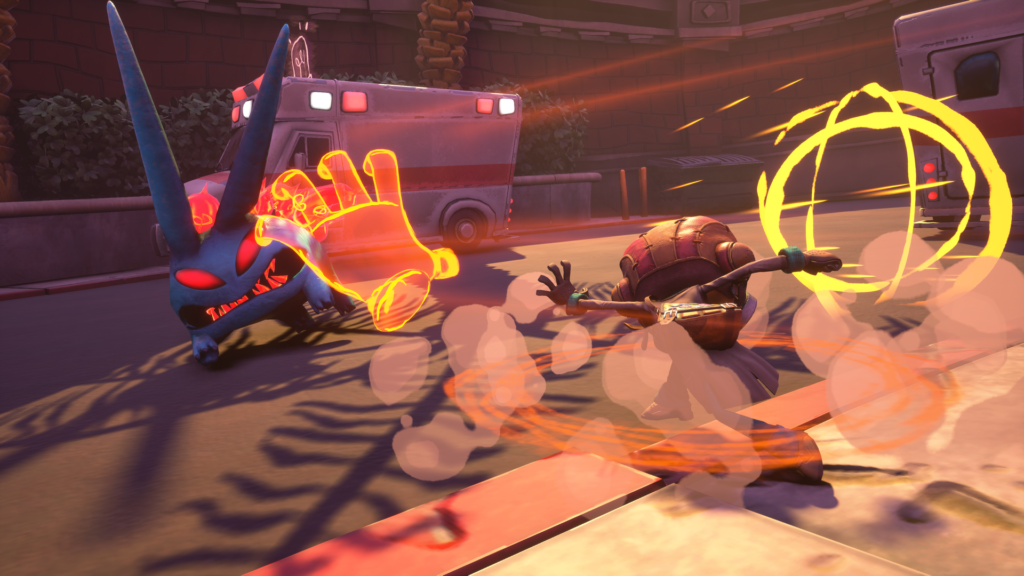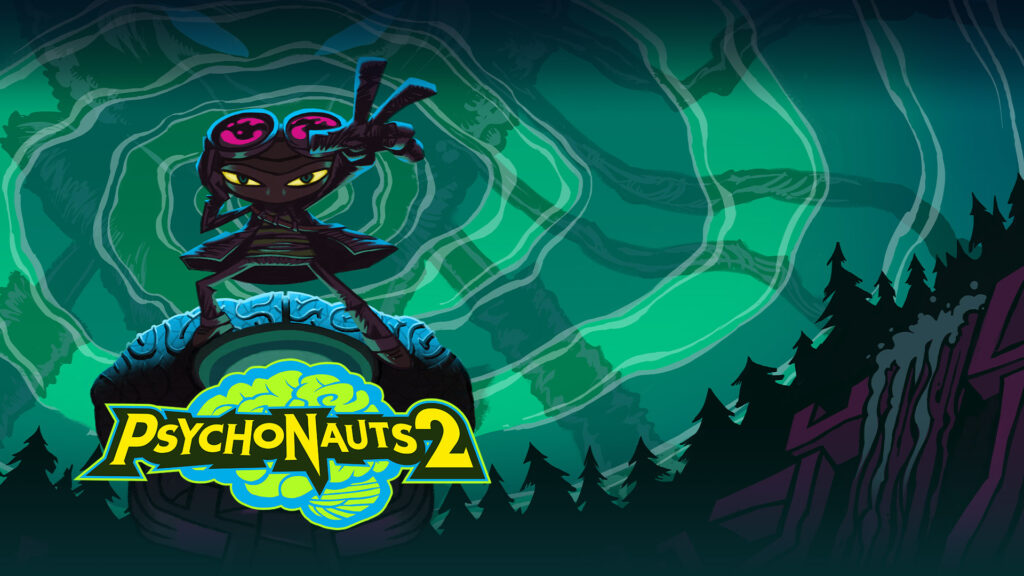This isn’t a game about heroes fixing people or defeating villains so much as it is about recognising our own flaws and how dark thoughts exist within everyone, and it treats the player’s own journey of mental wellbeing with patience and empathy. So nothing like Twitter, then.
-
Game design
-
Combat
-
Story
The original Psychonauts offered a genuinely interesting story that wasn’t just about saving the princess or the world, or collecting a hundred MacGuffins. Here’s why its sequel is a timely one…
A direct sequel set only a few days after the first game, Psychonauts 2 is keen to catch you up on everything that happened to little Raz prior to his graduation to become a member of the elite Psychonauts.
Meet Raz

The story sees Raz investigating both the secret group and his own circus-performing family, and often diverts you off course with new areas to explore and side-quests to tackle. While that might interrupt the pacing, you will find yourself in plenty of fascinating scenarios, like navigating a giant pachinko machine or taking part in a bizarre cooking show.
But as was the case with the first game, this one’s at its best when exploring other characters’ minds, with each mental world having a different theme; this has allowed for imaginative level design with vastly diverse art styles.
Combat is the weakest element: it’s often somewhat scrappy, with a lock-on that can be more of a hindrance than a help when you’re occasionally mobbed from all directions. But any one who hasn’t signed up for a challenging game can opt to toggle to invincibility mode at any time (at the very least we recommend turning off fall damage).
People have the powers
Raz has a repertoire of psychic powers that really add to the gameplay, and which you can upgrade or modify over the course of the game. There are the obvious ones such as telekinesis and psi blasts for ranged attacks, but the most inventive ones come in useful for platforming, combat and puzzle-solving.
For instance, time bubbles can slow down both enemies and fast-moving objects, like a spinning fan that’s blocking your path; and levitation lets you speed around on a ball that can traverse dangerous terrain but can also be upgraded as a way to knock down or ground-pound enemies.
One of the more inspired powers is mental connections. This seems to be a grappling hook, but it can be used to connect two disparate ideas in someone’s mind. In fact, you could even break off someone’s negative thoughts associated with a certain idea and reconnect them with more positive ones.
It’s an interesting concept… and behind the puzzle-solving, the game also explores the implications of trying to ‘fix’ someone’s mind. It’s a good example of how Psychonauts 2 playfully and meaningfully uses mechanics to develop both themes and narratives.
Pshychonauts 2 Verdict
 If we’re going to talk about accessibility, Psychonauts 2 could have done more to provide hints or ease your navigation, such as prompts when you’re stuck at a puzzle because you don’t have the right power equipped.
If we’re going to talk about accessibility, Psychonauts 2 could have done more to provide hints or ease your navigation, such as prompts when you’re stuck at a puzzle because you don’t have the right power equipped.
Still, any minor annoyances are far outweighed by the game’s generosity, including the chance to revisit past mental worlds. Its physical and intangible realms are both full of warmth and humour – just be prepared for plenty of puns.
This isn’t a game about heroes fixing people or defeating villains so much as it is about recognising our own flaws and how dark thoughts exist within everyone, and it treats the player’s own journey of mental wellbeing with patience and empathy. So nothing like Twitter, then.




